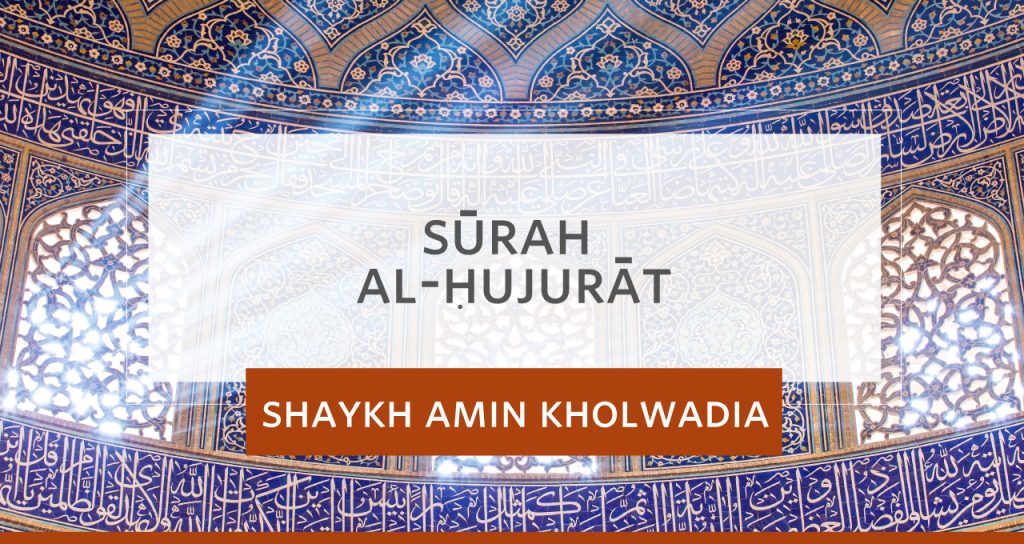SESSION 3, DELIVERED ON 5/29/2022
It is a human trait that humans will fight and argue. But, the Qurʾān teaches us the civilizational adab (etiquettes) of how to regulate it.
“We need to dismiss the idea that Muslims are angels that do dhikr (hymn praises), don’t argue, and automatically go to Jannah.” – Shaykh Amin Kholwadia
Even Muslims fight. Even in marriage. The Prophet ﷺ asked Allah ﷻ to prevent the Ummah (community) from fighting and not have ikhtilāf (differences). Allah ﷻ refused this duʾāʾ(supplication) because it is part of the reality and test of life.
At the government level, al-bāghi (the rebel) is one opposing their government. It is an ithm kabirah (major sin) for Muslims to kill each other, ‘iqtatalū’. A third (separate) group should help make peace and a truce to prevent bloodshed. Aṣliḥu (reconciliation) is the adab to help them stop fighting. If that doesn’t work, oppose the group that’s rebelling until they return to maintaining peace and tranquility.
When helping with negotiating, make sure there is not anything left unresolved. In gray areas (not with ḥarām; prohibited matters), negotiations are allowed. Meeting halfway is better than not resolving. One cannot say their opinion is the only opinion. We need to find the best opinion for the group, not the individual. Even if you are right, you can concede to something for the greater good. “Wal fitnatu ashaddu min al-qatl.” ‘Disorder is worse than killing.’ (Q 2:191)
Need to show that you’re not showing favoritism to any one group. This is ʿadl (justice). “Inna Allah yuḥibb al-muqsiṭīn.” You must recuse yourself if you have a vested interest in one of the parties. Otherwise, you would not be of the muqsiṭīn.
In our Islamic tradition, we celebrate differences. You are not a leader if you cannot lead people who have differences of opinion. The Ummah needs to be together as a group despite the differences of opinion. Allah’s Raḥmah (Divine Mercy) descends on those who look to unite the Ummah. “Within our diversity, we have tawḥīd (Belief in Oneness).” – Shaykh Amin Kholwadia
In this lecture:
- the myth that Muslims do not fight
- the categories of two conflicting Muslim groups
- maintaining peace and stability once it is achieved
- gray areas and room for negotiation
- the spirit of the law
- taqwā at the center of service
- reconciling differences under the amīr

